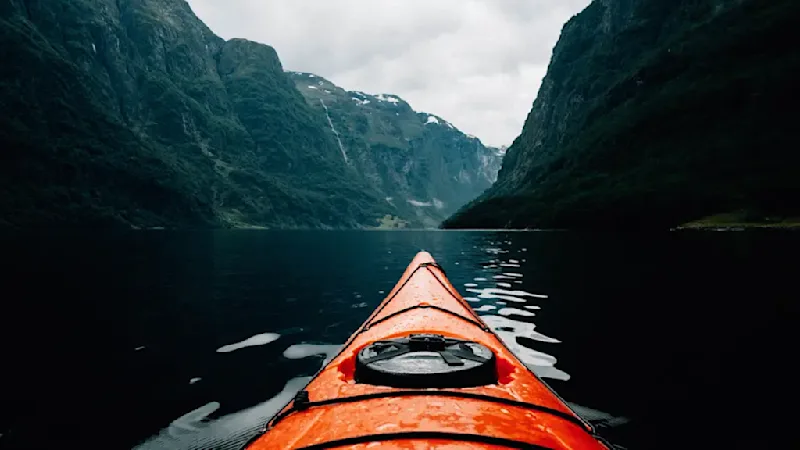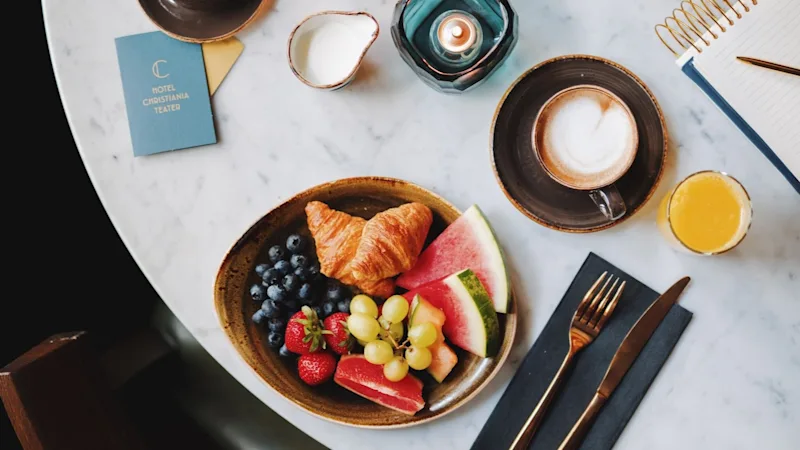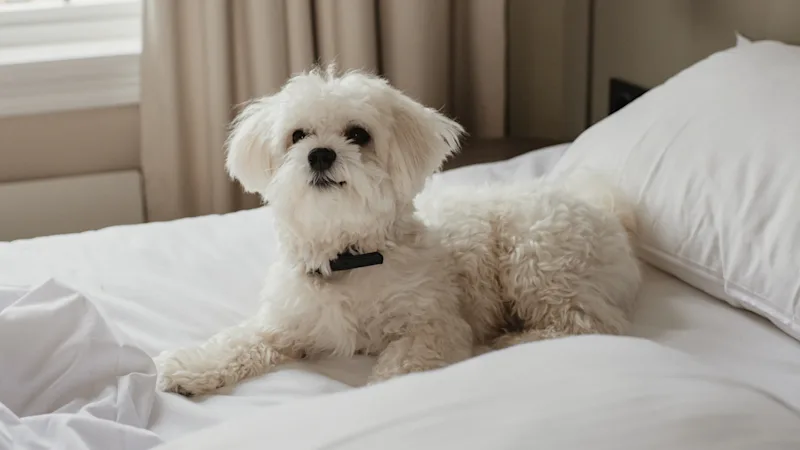Oslo is the 2019 European Environmental Capital and this is how we are doing our bit
This year Oslo earned the well-deserved award of European Environmental Capital. Here you can read about how our hotels are doing their bit – for Norway's capital and for the rest of the planet.

Each year, a city is named European Environment Capital by the European Commission. Part of the jury's reason for giving the award to Oslo now is that climate and the environment are a leitmotif throughout all the city's policy areas.
This is important for us too: that there should be a focus on the environment and climate in everything we do. We believe that one of our most important tasks is to reduce our impact on the environment. So, these are some of the things that our hotels in Oslo do:
Quality Hotel™ 33 takes full advantage of the coffee
Quality Hotel™ 33 at Økern in Oslo has a collaboration with Gruten, a company that collects coffee grounds, which otherwise would have just been thrown away, and uses these grounds to grow oyster mushrooms and produce body scrubs and hand soaps of the remaining recycled goods.
The venue where Gruten produces oyster mushrooms is 500 meters away from Quality Hotel 33, and therefore it is quite natural for the hotel to buy local oyster mushrooms for their Top Floor-restaurant from there.
It can’t get any better for the environment than that – especially when the mushrooms are transported to the hotel by bicycle!

Clarion Hotel® The Hub grows food on the roof
Clarion Hotel The Hub, right in the centre of Oslo, has the largest roof fields in the Nordic region – GrowHub. With it, a whole new way to grow food in the city is being tried out, one that is both economical and sustainable. With this initiative, the hotel will be a role model, and we hope that all the roofs of the future will be green.
It will be watered with rainwater and fertilized with composted food waste from the hotel restaurant. The roof-field will produce about 10,000 vegetables per year, which will again be served in the hotel restaurant.

This is what all our hotels are doing for the planet:
Removing their use of plastic
Every minute, 15 tons of plastic ends up in the sea. Therefore, it was a matter of course for us to say yes when we were challenged to participate in Plaststafett with Hurtigruten and the environmental organisation WWF. This means that all our hotels must completely stop using any unnecessary plastic and disposable products, in addition to having full control over where the plastic waste actually goes.
Even before this initiative, Comfort Hotel® went into rehab for plastic abuse. You can read about exactly what this consisted of here.

Thinking about recycling on all levels
One of our goals is that by 2021 we will be recycling 99% of all waste. Our hotels should think about recycling on all levels, increase the possibilities for source separation, buy recyclable products, and teach employees to think more environmentally friendly.
Cutting down on transport and thus on emissions
Transport contributes to the emission of greenhouse gases and is a problem for the health of humans and animals alike. Therefore, we need to cut down on transport. In addition, by 2021, we will be climate compensating 100% of the transports that are still needed.

Together with our suppliers, we have introduced volume discounts that allow the hotels to place larger orders. This, in addition to better ordering routines, results in fewer deliveries to the hotels.
An extra nice thing: Several of our suppliers ‘lorry-share’ (transport their goods using the same vehicles!) together!
Serving only sustainable fish and meat
We obviously do not want to serve food that comes from production with animal abuse, species eradication, or from production that damages the environment. Therefore, we have used WWF's seafood guide – a guide to choosing environmentally friendly seafood – to prepare a list of meat and fish products that we should avoid. This list is followed by all our hotels.
See the blacklist here (in Swedish).
Taking measures for less food waste
You have probably heard the expression “your eyes are bigger than your belly”? Have a look at this photo:

The same amount of food, but it looks like there's more on the left, right? Our hotel restaurants found that smaller plates lead to less food waste, because the guests do not serve themselves as much and thus eat more of what they have on the plate.
In fact, food waste was reduced by as much as 20% by switching plates. Size matters.
All our hotels have ISO 14001 certification
ISO 14001 is a collective name for international environmental standards and a tool that helps companies reduce their environmental impact. This certification did not just turn up in the hotel’s post box completely out of the blue – there has to be a clear focus on environmental improvement measures, results must be recorded, and the goals must be adjusted each year to have the distinction of being ISO 14001 certified.
Each hotel has an environmental coordinator who takes responsibility for ensuring that the environmental work is carried out and registered, all employees receive training, in addition to being audited each year by an external company that ensures that we still deserve the certification.

WeCare
Other things we do include working continuously to reduce the use of hazardous chemicals, reduce water consumption, and reduce energy consumption. In addition, we have a goal that as many hotels as possible should be run by renewable energy.
WeCare is the collective concept for our daily work of caring for people, the environment and profitability. We will create opportunities for people inside and outside our business, and we will operate our business with the least possible impact on the environment. Because there is no business on a dead planet.
Interested in reading more about our work with sustainability and WeCare? You can find the details here.
If you would rather see and hear more about WeCare, you can do that here:


